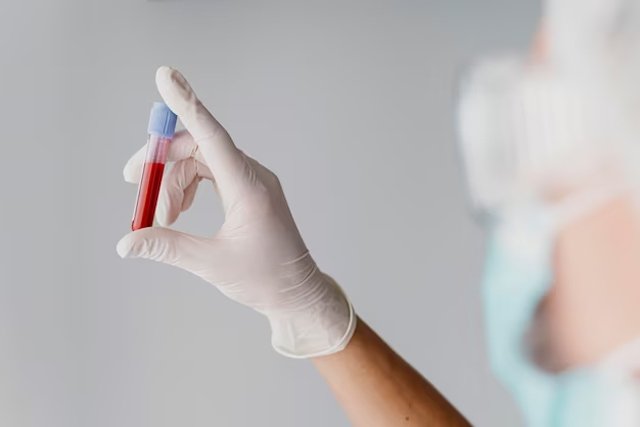Embarking on a journey through the intricacies of blood tests requires meticulous preparation. From deciphering fasting requirements to understanding the impact of lifestyle choices, this guide unravels the nuances of ensuring accurate and reliable results. In this exploration, we delve into the crucial elements of fasting duration, dietary restrictions, and the significance of a good night’s sleep.
1. The Art of Fasting: Mastering the Pre-Test Ritual

Understanding the science behind fasting is paramount. The duration of fasting can vary, typically ranging from 8 to 12 hours, ensuring a clean slate for accurate blood test results. Explore the reasons behind these fasting durations and why certain tests may deviate from the conventional fasting window.
For instance, delve into the exceptions to the fasting rule. Some tests demand a unique approach, such as indulging in sugary delights for gestational diabetes screenings. Navigate the intricate details of specific tests and tailor your fasting approach accordingly. Understanding the rationale behind these exceptions ensures that your preparation aligns with the unique requirements of your blood test.
1.1. Beyond the Basics
Uncover the exceptional cases where fasting might not be the norm. Some tests require a specific dietary approach, challenging the conventional fasting guidelines. For instance, tests for gestational diabetes may necessitate consuming sugary foods or drinks for a defined period before the test. Understand how these foods can impact glucose levels and why this departure from the traditional fasting routine is essential for accurate results.
Explore the impact of medications, including over-the-counter drugs, vitamins, and herbal remedies, on fasting and blood test results. Recognizing the factors that can interfere with your test ensures a more informed and successful fasting experience.
2. Dos and Don’ts Before the Blood Draw

Discover the pivotal role water plays in the preparation process. Water not only aids in hydration but also makes your veins more accessible during the blood draw. Explore the reasons why water is the beverage of choice during fasting, and say goodbye to caffeinated pitfalls, understanding the clarity that comes with proper hydration.
Dive into the nuances of hydration, emphasizing the importance of avoiding certain beverages like coffee and caffeinated drinks that can lead to dehydration. Learn how proper hydration enhances the efficiency of the blood draw process, contributing to a more comfortable experience for both you and the phlebotomist.
2.1. The Dance of Rest and Readiness
Unlock the secrets of a good night’s sleep and its impact on the accuracy of your blood test results. Delve into the connection between rest, relaxation, and vein accessibility, understanding how a well-rested state can significantly ease the blood draw process.
Explore practical tips for ensuring a restful night before your blood test, such as engaging in calming activities like reading or listening to music. Understand the potential impact of caffeine and nicotine on your sleep quality, emphasizing the importance of lifestyle choices leading up to the test day.
3. The Blood Test Symphony: Conducting Yourself on the Day

Navigate the practical aspects of test day, from arriving early to having the necessary documents on hand. Understand why arriving early is crucial to minimizing wait times and ensuring a smoother experience overall. Explore the significance of attire choices, emphasizing the practicality of wearing short sleeves to facilitate easy access to your arm during the blood draw.
Delve into the importance of bringing essential documents like your insurance card and identification, streamlining the check-in process. Explore the option of bringing a snack and drink, such as a smoothie or protein bar, to mitigate hunger during potential waiting periods.
3.1. Distract and Conquer
Embark on a journey of distraction techniques during the blood draw. Whether it’s music, a good book, or the comforting presence of a friend or family member, discover strategies to make the blood draw experience more comfortable. Understand the psychological impact of distraction on pain perception, fostering a positive mindset during the procedure.
Explore the option of anesthetic injection for those anxious about the discomfort of a blood draw. Recognize that this option is available and can significantly contribute to a more relaxed and comfortable experience.
4. Post-Test Serenity: Nurturing Yourself After the Draw

Explore the aftermath of the blood test and the importance of continued rest. Understand why avoiding strenuous activities post-test is crucial for maintaining result accuracy. Delve into the reasons behind this recommendation, emphasizing the need to allow your body to recover after the blood draw.
4.1. Hydrate, But With Caution
Uncover the delicate balance of post-test hydration. Understand why excessive water intake can alter electrolyte levels and potentially skew results. Explore the recommended amount of water intake after the blood draw, emphasizing moderation and the role of hydration in the recovery process.
Delve into post-test recommendations, including avoiding smoking or chewing gum, as these can also affect your results. Understand the holistic approach to post-test care, ensuring that your body is in an optimal state for accurate blood test results.
Conclusion
Embarking on a blood test journey involves more than just a medical procedure; it’s a commitment to your health. One crucial aspect to consider is how long to fast before blood tests. By mastering the art of fasting, preparation, and recovery, you empower yourself to navigate this process with confidence, ensuring the accuracy of the insights gained from your blood test results. Recognize that each step in the process plays a crucial role, contributing to a comprehensive and reader-friendly guide for an engaging blood test experience.




